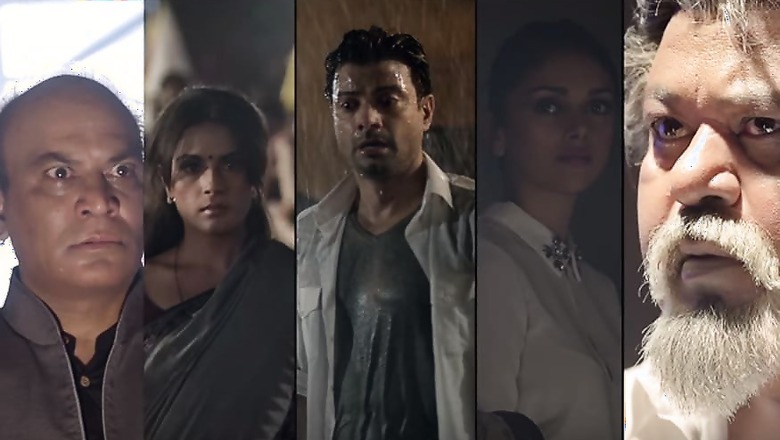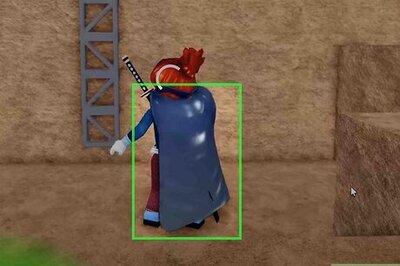
views
A couple of years ago, I met director Sudhir Mishra at the National Film Development of India's Film Bazaar in Goa's Panaji that runs along with the International Film Festival of India. He told me that he was making a movie out of Devdas, Sarat Chandra Chattaopadhyay's 1917 Bengali novel. A classic which innumerable helmers had adapted in the course of time, the most recent being Sanjay Leela Bhansali's colourful glossy in 2002 which had Shahrukh Khan playing Devdas, Aishwarya Rai Paro/Parvathi and Madhuri Dixit Chandramukhi. It had a special screening at the Cannes Film Festival.
An Indian movie at Cannes after a hiatus of several years, Devdas disappointed critics there who felt that the Bhansali work was just sheen and little substance. What was worse than this was the flak which the General-Delegate of the Festival, Thierry Fremaux, faced both at home and in India for having picked a film that was shallow by every yardstick. A few years later, when he came to the Film Bazaar and tried to explain why he chose Devdas, many of those present at the talk looked at him with disdain. Here was the chief of the world's most prestigious, biggest movie Festival trying to push an undoubtedly bad choice.
Anyway, I think Fremaux learnt his lesson the hard way, and if I am right, he has been careful with his India selections since that fateful year. Also, I do not think there would be another Devdas after Bhansali's tryst with the literary work.
Classic it may be, but I have always found Devdas to be a degenerate character. Here he had the woman, Paro – a childhood sweetheart – for the asking, but instead chose to lose her to an old man with grown up children. And Dev, egged on by an idiot of a friend, drowns in drink and buries himself in the arms of a dancing courtesan, Chandramukhi. Should a man with all the wealth in the world have behaved so irresponsibly towards himself and the woman he loved (and was loved in turn)? To me, Dev was negativity personified. He was a weakling who had no guts to gather the woman he loved in his arms and leave; the woman was all willing and even walks into his bedroom in the middle of the night at a time when such an act would be nothing short of scandalous. Paro did that, but found her lover lost and unwilling to be with her.
In the end, after Paro marries the old man and leaves, Dev drinks himself to a ruinous state, wanders around the country to try and soothe his wounded mind and body. And he dies at Paro's door.
Happily, Mishra's Daas Dev is all positivity. It ends on a happy note, and I felt joyous that the director had thought of such a climax for Sarat Babu's gloomy tale of love and disappointment. Daas Dev takes us to the badlands of India's Uttar Pradesh. It is 1997, a period of political turmoil and treachery – when brothers kill brothers, when fathers see their own sons shot dead. There is Paro (Richa Chaddha), there is Chandini (Aditi Rao Hydari) and there is Dev (Rahul Bhat).
Of course, Paro and Dev are childhood sweethearts, and when his father, a politician, is assassinated, his brother (Saurab Shukla) takes over, not just the political empire, but also the widow. No wonder, Mishra says that his film has touches of Shakespeare’s Hamlet, and Sweta Kaushal wrote in her review of Daas Dev in Hindustan Times that the movie also had strong traces of the Bard's Othello. Maybe.
Mishra infuses his story with all the ingredients of modern-day maladies. How the land of farmers is being grabbed by rich and corrupt men out to mine bauxite there. These, though, are merely touched upon, but what is allowed to play out in detail are instances of greed, power, cynicism and lust. Chattopadhyay’s original plot has been retained to some extent with Paro marrying an old, impotent man, with Dev being a slave to drugs and drink and with Chandini essaying a power hooker – who though lets the good streak in her take over. She helps the lovers unite. Yes, they do after Paro's husband dies, and Dev's uncle as well.. And the reunion – which goes completely against the 1917 classic tale – is just beautiful.
Congrats to Mishra for having turned an essentially morbid story into one that at least ends positively. With the world getting increasingly dark and depressive these days, Daas Dev seems like, to use an old saying, an oasis in the desert.
(Gautaman Bhaskaran is an author, commentator and movie critic, and may be e-mailed at [email protected])




















Comments
0 comment